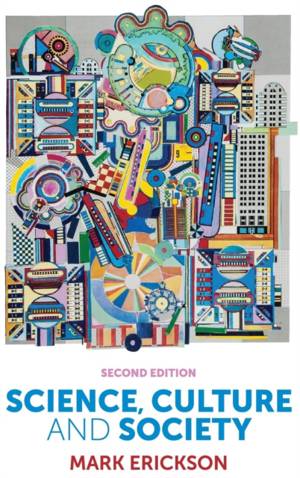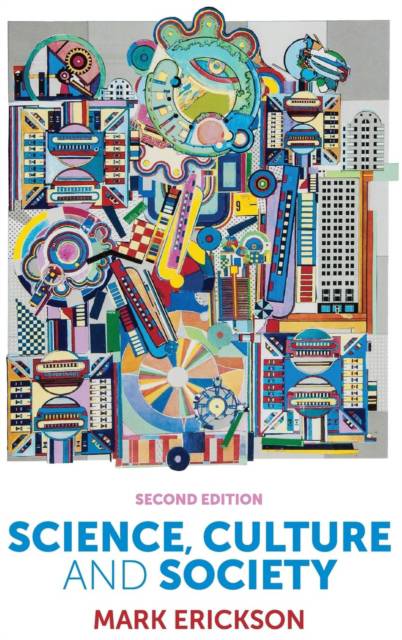
Bedankt voor het vertrouwen het afgelopen jaar! Om jou te bedanken bieden we GRATIS verzending (in België) aan op alles gedurende de hele maand januari.
- Afhalen na 1 uur in een winkel met voorraad
- In januari gratis thuislevering in België
- Ruim aanbod met 7 miljoen producten
Bedankt voor het vertrouwen het afgelopen jaar! Om jou te bedanken bieden we GRATIS verzending (in België) aan op alles gedurende de hele maand januari.
- Afhalen na 1 uur in een winkel met voorraad
- In januari gratis thuislevering in België
- Ruim aanbod met 7 miljoen producten
Zoeken
Science, Culture, Science
Understanding Science in the 21st Century
Mark Erickson
Hardcover | Engels
€ 111,45
+ 222 punten
Omschrijving
Science occupies an ambiguous space in contemporary society. Scientific research is championed in relation to tackling environmental issues and diseases such as cancer and dementia, and science has made important contributions to today's knowledge economies and knowledge societies. And yet science is considered by many to be remote, and even dangerous. It seems that as we have more science, we have less understanding of what science actually is.
The new edition of this popular text redresses this knowledge gap and provides a novel framework for making sense of science, particularly in relation to contemporary social issues such as climate change. Using real-world examples, Mark Erickson explores what science is and how it is carried out, what the relationship between science and society is, how science is represented in contemporary culture, and how scientific institutions are structured. Throughout, the book brings together sociology, science and technology studies, cultural studies and philosophy to provide a far-reaching understanding of science and technology in the twenty-first century.
Fully updated and expanded in its second edition, Science, Culture and Society will continue to be key reading on courses across the social sciences and humanities that engage with science in its social and cultural context.
The new edition of this popular text redresses this knowledge gap and provides a novel framework for making sense of science, particularly in relation to contemporary social issues such as climate change. Using real-world examples, Mark Erickson explores what science is and how it is carried out, what the relationship between science and society is, how science is represented in contemporary culture, and how scientific institutions are structured. Throughout, the book brings together sociology, science and technology studies, cultural studies and philosophy to provide a far-reaching understanding of science and technology in the twenty-first century.
Fully updated and expanded in its second edition, Science, Culture and Society will continue to be key reading on courses across the social sciences and humanities that engage with science in its social and cultural context.
Specificaties
Betrokkenen
- Auteur(s):
- Uitgeverij:
Inhoud
- Aantal bladzijden:
- 272
- Taal:
- Engels
Eigenschappen
- Productcode (EAN):
- 9780745662244
- Verschijningsdatum:
- 23/11/2015
- Uitvoering:
- Hardcover
- Formaat:
- Genaaid
- Afmetingen:
- 152 mm x 229 mm
- Gewicht:
- 517 g

Alleen bij Standaard Boekhandel
+ 222 punten op je klantenkaart van Standaard Boekhandel
Beoordelingen
We publiceren alleen reviews die voldoen aan de voorwaarden voor reviews. Bekijk onze voorwaarden voor reviews.









